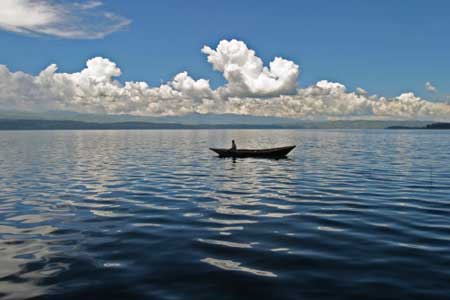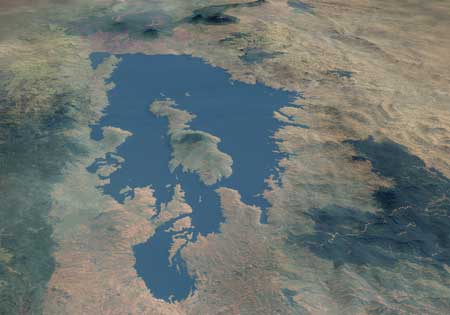Lake Kivu is situated in a major rift in East Africa. This lake has a particularly strange phenomenon where it sometimes boils vigorously, occasionally for weeks at a time, cooking fish in the water. Locals can simply scoop the fish out and eat them immediately.

(Image: jonnydonovan)
Why does the water in the lake boil? The reason is that there is a volcano located not far from the lake. When the volcano is active, lava flows into the lake, causing the water to boil.
Even more interesting is that the bottom of the lake is filled with biogas. It is estimated that there are over 300 billion cubic meters of gas, equivalent to 600 million tons of crude oil. The two countries bordering the lake, the Democratic Republic of the Congo (Zaire) and Rwanda, are extracting this gas to use as fuel for generators.
People often ask: Where does the biogas come from? This is due to the lake’s bottom containing a large amount of organic matter and remains of living organisms. The low oxygen levels create conditions for anaerobic microorganisms to thrive, producing biogas over time, which has become a valuable energy resource.

NASA satellite image of Lake Kivu and the nearby volcano (Image: NASA)


















































